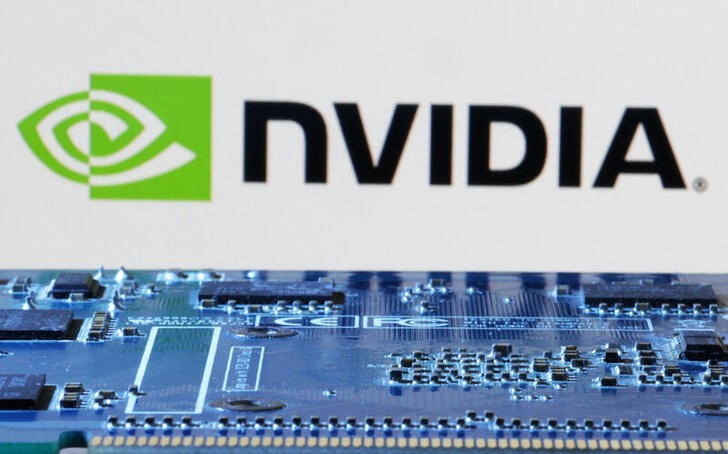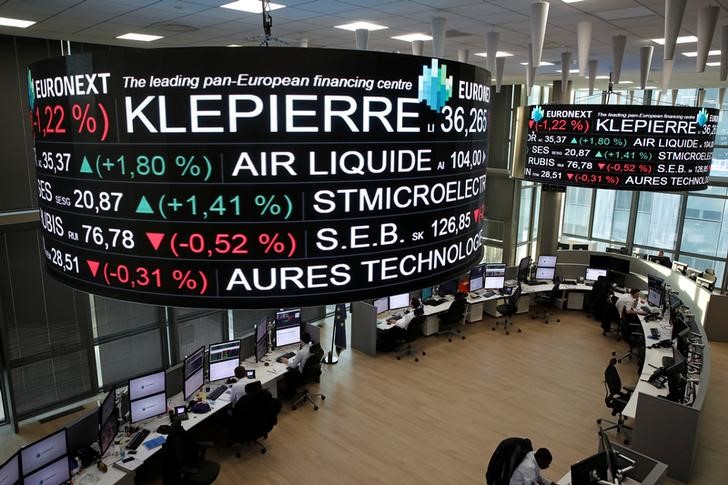By Victoria Waldersee
WOLFSBURG, Germany (Reuters) – Volkswagen (ETR:VOWG_p)’s union called on management to take a “big step” in a third round of negotiations over pay and factory closures on Thursday, with positions appearing still far apart days before workers threatened strikes across German sites.
Thousands of employees gathered as talks began over wages for 120,000 of Volkswagen’s roughly 300,000 staff in Germany, employed at six plants governed by a separate collective wage agreement to the rest of the workforce.
Volkswagen has demanded a 10% wage cut, arguing it needs to slash costs and boost profit to defend market share in the face of cheap competition from China and a drop in European car demand. It is also threatening to close plants in Germany for the first time in its 87-year history.
The troubles at Europe’s largest automaker have fed wider anxieties about Germany’s status as an industrial powerhouse in the run-up to a snap election in February in which Chancellor Olaf Scholz’s economic record is under scrutiny.
Unions on Wednesday proposed forgoing bonuses for two years and creating a fund to finance a temporary reduction in working hours in less productive areas of the business. They said these measures would avoid redundancies and save 1.5 billion euros ($1.6 billion).
But the proposal was contingent on management ruling out plant closures, which Volkswagen has refused to do.
“A solution before Christmas relies on the other side making a big step towards one today,” said IG Metall union negotiator Thorsten Groeger.
“If IG Metall wants, the factory lines will stand still.”
If management rejects their proposal, unions – a powerful force at Volkswagen, controlling half the seats on its supervisory board – will demand a 7% pay rise alongside no plant closures.
If their demands are not met, workers could strike from December across German sites, the first large-scale strikes at the German business – VW AG – since 2018 when over 50,000 workers took to the streets over pay.
“We welcome that worker representatives are signalling openness to measures on labour costs and overcapacity … We will go into a detailed exchange in the negotiations,” Volkswagen board member Gunnar Kilian said in a statement.
AUTOMAKERS STRUGGLING
Thousands of workers from various cities gathered in the soccer stadium in Wolfsburg, where Volkswagen is headquartered, on Thursday morning, blowing whistles, waving flags and whooping and booing. Sausages and pretzels were served in near freezing temperatures outside.
The large crowd of workers “is just a taste of what would come in December,” VW AG works council chief Daniela Cavallo said.
Company and industry data reviewed by Reuters showed that the automaker spends a higher proportion of sales on labour costs than its major rivals.
But others are also struggling.
Ford (NYSE:F) said on Wednesday it would cut around 14% of its European workforce.
Volkswagen’s preferred shares, listed in Germany’s blue-chip DAX index fell 1.4% to their lowest level since Nov. 13. The company’s common stock, majority owned by Porsche SE – the holding firm controlled by the Porsche and Piech families – declined 1% to its lowest level in over 13 years.
Unions have called on Volkswagen’s key owners to pitch in on savings, something Stifel analysts said would be negative for biggest shareholder Porsche SE.
The union proposal “seems some way off what we assume VW management hopes to achieve in the negotiations,” a note from Stifel said.
Claudia Jobe, a member of the VW works council at the Hanover plant, said management had changed its tune since she joined the company in 1991 to making unilateral decisions in the interests of shareholders, not workers.
“You’re also afraid, you’ve been at the plant for so many years and it all counts for nothing,” she said, adding that she was pessimistic on the outcome of Thursday’s talks.
“I expect we might have to go on a warning strike from December.”
($1 = 0.9494 euros)










